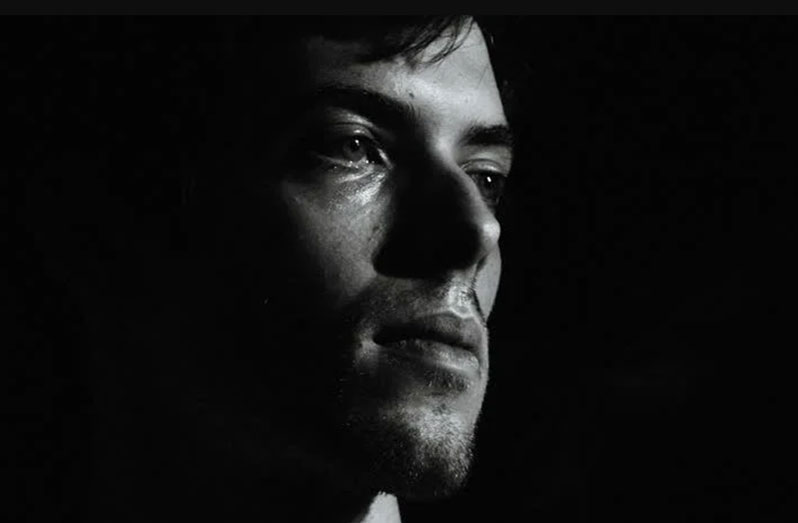A STORY, drifting with time, decades ago, told and retold of a young man’s sudden death.
“It was a night like this,” his eldest sister related to the family gathering.
They had all come home from abroad for a vacation, and always, when they were together, they would talk about him.
“No one was home that day,” she continued, “for there was a wedding a few villages away.”
The younger generation of nieces and nephews, who could not remember him, or knew him at all, listened intently,
“Why didn’t he go to the wedding?” a young niece asked.
“He had some unfinished work on the farm.”
“And no one noticed anything strange about his behaviour?”
“No, for he was always a quiet person.”
A short silence descended on the family as memories of a loved one, a good son, who ended his life, twenty-two years ago, became refreshed in their minds.
Unforgettable, that tragedy.
 On the wall hung a framed, black and white picture of a handsome, pleasant-looking young man, in whose eyes, the world seemed to shine, but on a Sunday night, as the farmland laid silent and the waves touched the foreshore, in hushed tones, he ended his life.
On the wall hung a framed, black and white picture of a handsome, pleasant-looking young man, in whose eyes, the world seemed to shine, but on a Sunday night, as the farmland laid silent and the waves touched the foreshore, in hushed tones, he ended his life.
His family had stared, shocked, on their return at the lifeless figure hanging from a rope on the mango tree.
To this day, no one knows why.
Anarkali, one of the young nieces, intrigued by the story of her uncle, whom she could not remember, looked at her grandmother, sitting quietly in a corner. She touched her hand in a comforting gesture and asked, “Grandma, are you okay?”
The old lady looked at her and tried to smile, but sadness over the decades had not drifted away with the waves of time and her lips trembled.
“Nothing was ever the same again, my dear.”
Anarkali squeezed her hand, affectionately and said, “It was an unexpected tragedy and such shock and pain, sometimes last a lifetime.”
The old lady nodded and said softly,
“He was my first son and I still don’t know why he left me that way.”
Anarkali laid in bed, that night, thinking, unable to sleep.
“How could, no one not know?” she questioned, “Why would a good, hard-working young man, who was not a drinker or victim of abuse, end his life so quietly, with not a word, not a message left behind?”
She got up and opening the back door on the upper flat, quietly, she stepped out on the verandah. From there she could see across the farmlands to the No.55 foreshore.
“There must be something,” she thought. “Some little detail that was missed.”
Finding the truth was a personal interest for her and as a law student, her analytical knowledge in unsolved cases was a great asset.
Her birth home and its culture she did not know much of because her parents had migrated when she was just five. But there was a connection here that bonded her, giving her a sense of belonging. This tragic tale she had heard several times before from families but it never aroused her interest like it did, hearing it here, where it actually happened.
The mango tree was still in the yard and from where she was standing, she could see it in the shadows. She closed her eyes and tried to visualize her uncle, standing there with the rope in his hands, looking at the tree limb, tying the knot and his flirt with death, his last breath, the look in his eyes.
“What was he thinking, were there regrets?”
“Anarkali,” a voice behind her said.
She opened her eyes, startled and turned around.
Her father was standing at the doorway, a little worried.
“What are you doing out here so late?”
“I couldn’t sleep,” she answered.
He joined her on the verandah, not looking at the mango tree but eventually his eyes were drawn and he sighed deeply.
“How old were you when it happened?” she asked him.
He did not answer for a while, looking up at the starless sky and when he spoke, there was a slight tremor in his voice.
“I was ten years old and I couldn’t quite understand, at the time, what had really happened. But many nights I came out on this verandah, hoping to see him, so he could tell me something.”
Anarkali, held her father’s hand, touched by his deep sentiments, never knowing how much his brother’s death had affected him.
A cold gust of wind blew in from the river and father and daughter went back in the house, without saying anything further.
The family’s vacation commenced with a religious function, to give thanks to God, visits and donations to several charities, entertaining family get-togethers and tours to beautiful places.
Coming home was always wonderful and as the days went by, Anarkali continued asking questions about her uncle’s suicide, so her grandmother could find closure. Many stories she heard of suicides and she wondered how no one ever heard the silent cries of the victims. It was something that seemed normal in this rural, farming area, for there was no centre for professional counselling.
“Maybe I should study psychology and move back here.” She mused, “To help people understand the value of life.”
It was drawing close to the end of the vacation and she discovered nothing new that could have thawed the cold case.
“Why, Uncle Raj?” she asked, as she looked at his picture on the wall. “Why didn’t you leave a note, so your family could have understood?”
She had excused herself from an outing, that day, to stay at home so she could think, undisturbed. Searching for answers, she found a few old family albums and looking through them, she noticed the picture of a strange, pretty, young girl in several of her uncle’s pictures. She was always standing in the background, looking at him with an admiring smile.
“She seems pretty young,” Anarkali observed, “She couldn’t be his girlfriend.”
No one had ever mentioned a girlfriend.
She showed the pictures to her grandmother, whose eyesight was not so good but an older aunt, looking at the picture, recognised the girl.
“It’s the doctor’s daughter,” she said, “The family had come from the city on a medical outreach programme in the village.”
“Was she here when the tragedy occurred?”
The aunt thought for a moment, “I don’t think so, she had left…” she paused, deep in thought, then a flash of recollection lit her eyes, “Come to think of it, Raj had not been himself for a while then.”
“How?” Anarkali asked, her excitement building, sure she was onto something.
“He was moody and worried.”
“Did anyone ask him what was worrying him?”
She shook her head slowly, “It’s normal for people to not be in a good mood sometimes.”
“Always the mistake,” Anarkali said, “Not paying close interest to a person’s change in behaviour.”
She held up one of the pictures with the young girl and declared, “This girl, most likely, holds the key to this tragedy.”
The two older women looked uncertain and, saying no more, Anarkali went up to the room, her Uncle Raj once shared with his three brothers. She walked around slowly, looking at small places, where something little could be hidden.
“There must be something here, everyone missed,” was her thought and climbing on a chair, she passed her hand along the window ledges, encountering dust and a large but harmless spider. She searched all the ledges in the room, finding some old coins and two mini toy cars but nothing else.
She stood there on the chair, a bit deflated but reluctant to give up because she had felt she was getting somewhere.
“Now what?”
She looked up at the inner framework of the roof and her eyes caught a piece of blue thread, stuck between the rafter and zinc on the roof. Being a girl of average height, it was a difficult task, reaching the thread but she tried and standing precariously on the top back of the chair, her fingers barely touching the thread, she pulled it slowly, knowing it could snap.
At the end of the thread was a piece of paper, discoloured by time.
Anarkali gasped and in her excitement, she missed her footing and fell hard on the floor. She laid there for a while, the breath knocked out of her and slowly she got up, groaning in pain, as her aunt ran upstairs to see what had happened.
She held up the paper, laughing a little, “I found something.”
It was a little note, written with shaky fingers – a suicide note.
Anarkali read what he had written twenty-two years ago, before he took his life.
“I made a mistake, she was too young. How do I undo this? What do I say? The love in her eyes, the temptation was too strong and I got her in trouble. Her father, the doctor would be unforgiving and the deep disappointment in my mother’s eyes I would not be able to see. What do I do? There’s only one thing…one thing would save both of us, tonight I will go far away. Sorry mother. I love you.”
The old lady sat on the sofa, shocked, tears, streaming down her face.
“He could have told me, I would have helped him.”
Two decades ago, strict traditional rules, once broken was like committing a crime and in most cases, families were unrepentant, punishment for the guilty, severe. The caste system also played a great part in those rules and in Raj’s case, a farmer boy falling in love with a girl from a upper class family was unacceptable.
“Where is she now?” Anarkali asked.
“No one knows.” Her older aunt answered, “She left and never returned.”
After twenty-two years, the truth of a loved one’s sudden death was found, hidden for so long. Now the family’s mind would be at peace, when they think of him, a good son, whose silent cry they did not hear.
At the end of the vacation, as Anarkali bid her birth home ‘farewell’, for now she made a promise in her mind, “I will find this girl, whom he loved so she can know why her lover took his life.”
He died to save her.












